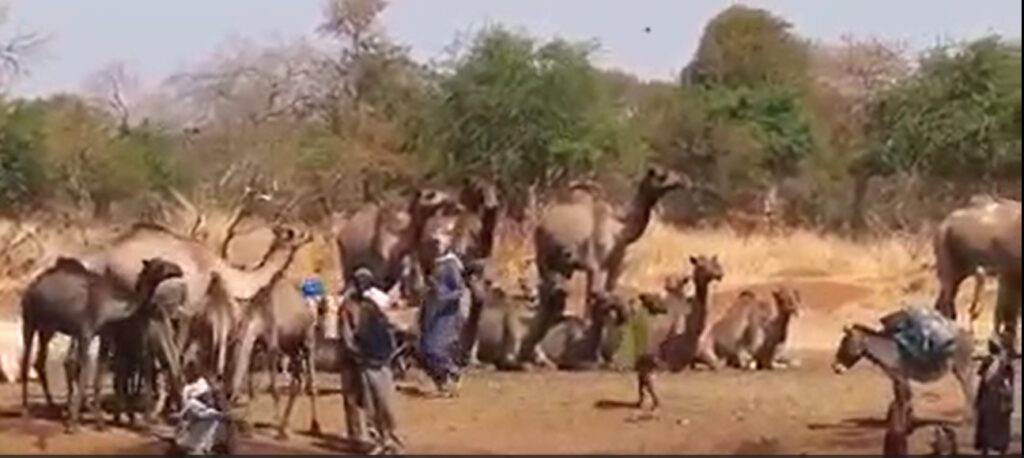The Baggara Arabs, also known as Shuwa Arabs, are a group of Arabic-speaking nomadic and semi-nomadic people found primarily in Central and West Africa. Renowned for their cattle herding lifestyle and rich cultural identity, they are spread across countries such as Sudan, Chad, Nigeria, Cameroon, and the Central African Republic. The term “Baggara” is derived from the Arabic word baqqārah, meaning “cattle herder”—a key feature of their lifestyle. These group of people are widely known by their nomadic lifestyle within the locations where they settled.
Also Read: Maasai Tribe History
Origin and Migration History
The Baggara trace their roots to the Arab tribes of the Arabian Peninsula, particularly from the Juhayna confederation. Historical migrations during the Islamic conquests and trade expansions led them across Egypt and Sudan into Sub-Saharan Africa. By the 14th to 17th centuries, they had firmly established themselves in Sudan and Chad, with later expansions into northern Nigeria and Cameroon. Over time, intermarriage with indigenous African tribes shaped their distinct Afro-Arab identity.
Geographic Distribution
Today, Baggara Arabs are found across various African nations which including:
- Sudan (particularly in Kordofan and Darfur)
- Chad
- Nigeria (especially Borno, Yobe and Adamawa states)
- Cameroon (northern regions)
- Central African Republic
- Niger (in smaller populations)
Their presence is most notable in Sahelian regions, where they roam vast grasslands with their livestock for pasturing.
Language and Communication
The Baggara speak a dialect of Arabic known as Shuwa Arabic, influenced by local languages. It is distinct from Classical Arabic and incorporates vocabulary from Hausa, Kanuri, Fulfulde, and other regional tongues.
Food and Culinary Practices
Though they have some dishes but the Baggara diet centers around their cattle-based economy. Common foods include:
- Milk and dairy products (such as yogurt and sour milk)
- Beef and mutton
- Grains like millet and sorghum
- Dishes made with dried meat (jerky)
- Stews often flavored with local herbs and sometimes groundnut sauce
Milk is not just food but also a symbol of wealth and hospitality in Baggara tradition.
Religion and Beliefs
The Baggara Arabs are overwhelmingly Sunni Muslims, following the Maliki school of Islamic jurisprudence. Though we have some few of them who are Christian but Islam plays a central role in daily life such as:
- Daily prayers and fasting during Ramadan
- Qur’anic education for children
- Observance of Islamic festivals like Eid al-Fitr and Eid al-Adha
While Islamic beliefs dominate, some pre-Islamic and cultural traditions continue to influence social life.
Festivals and Celebrations
Apart from Christian among them observing Christmas and Easter and other Christian festival. The major festivals celebrated by the Baggara are religious in nature especially those who are Muslims include:
- Eid al-Fitr (marking the end of Ramadan)
- Eid al-Adha (Festival of Sacrifice)
- Maulid (celebration of the Prophet Muhammad’s birth in some areas)
Other cultural festivities may include dances, music, horse-riding, and wrestling matches, especially during community gatherings and weddings.
Cultural Practices and Way of Life
Baggara culture is rich with oral traditions, dance, poetry, and music. Their identity is tied closely to their nomadic pastoral lifestyle:
- Cattle herding is the backbone of the economy.
- Boys are trained as herders from a young age.
- Traditional clothing includes long robes (jallabiyas) and turbans for men; women wear colorful wrappers and headscarves.
Hospitality is a core value. Guests are often entertained with milk, tea, and meat, even in times of scarcity.
Marriage and Family Traditions
Marriage in Baggara society is both a family affair and a social contract.
Key marriage features include:
- Bride price (mahr) often paid in cattle or cash.
- Arranged marriages are common, especially among traditional families.
- Celebrations involve music, traditional dances, feasting, and blessings by Islamic or Christian clerics depending on that fellow religion.
Women are respected as homemakers and cultural custodians, playing a vital role in passing down traditions and raising children in Islamic or Christian way as well as cultural values.
You Can Also Read: Understanding BODMAS
Challenges and Modern Influence
Rising from cattle rustlers, in recent years, modernization and conflict in some areas have disrupted the traditional nomadic lifestyle. Climate change, desertification, and urban migration have led many Baggara to settle in towns, adapt to farming, or join modern employment sectors. Banned on open grazing in many countries have made them to settled with their livestock in a particular place without moving around as they used to be.
Conclusion
The Baggara Arabs (Shuwa Arabs) remain a vibrant and resilient community with a deep-rooted heritage in Africa. From their pastoral economy and religion believe to their unique blend of Arab and African traditions, the Baggara continue to adapt while preserving their identity. Understanding their culture helps appreciate the diverse ethnic mosaic that defines the African continent.
Action
How do you stay connected to your cultural identity? You can share your story using #MyCulturalCode and also comment below so as to keep our culture heritage alive! Let built ties through cultures. Also Visit our YouTube Channel: KunzaarChannelsTV through @kunzaarchannelstv to watch the best of cultural heritage.

